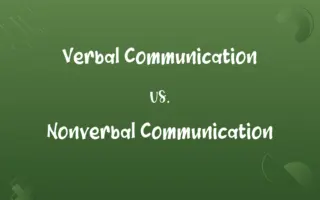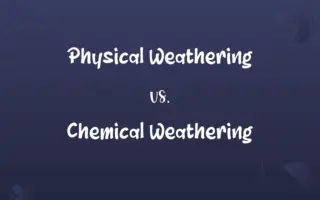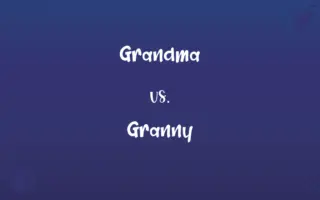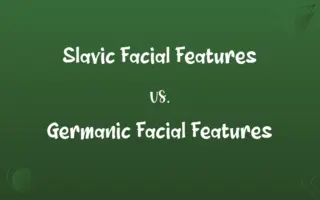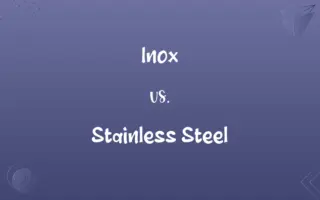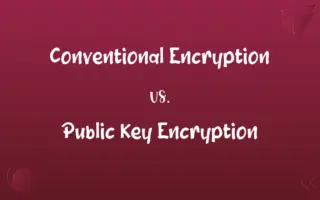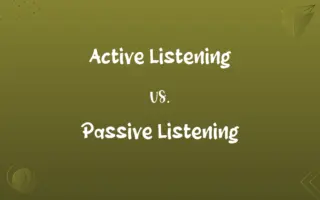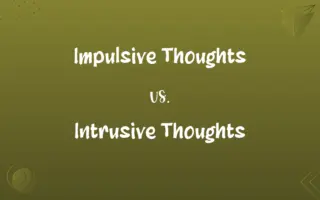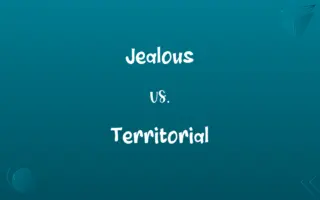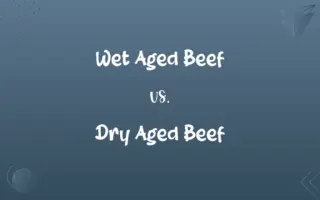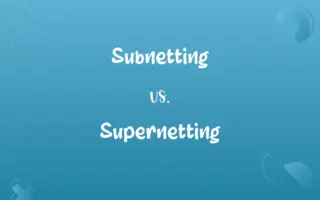Que Pasa vs. Que Paso: Know the Difference

By Shumaila Saeed || Updated on February 20, 2024
"Qué pasa" means "What's happening?" or "What's going on?" in present tense. "Qué pasó" means "What happened?" in past tense.
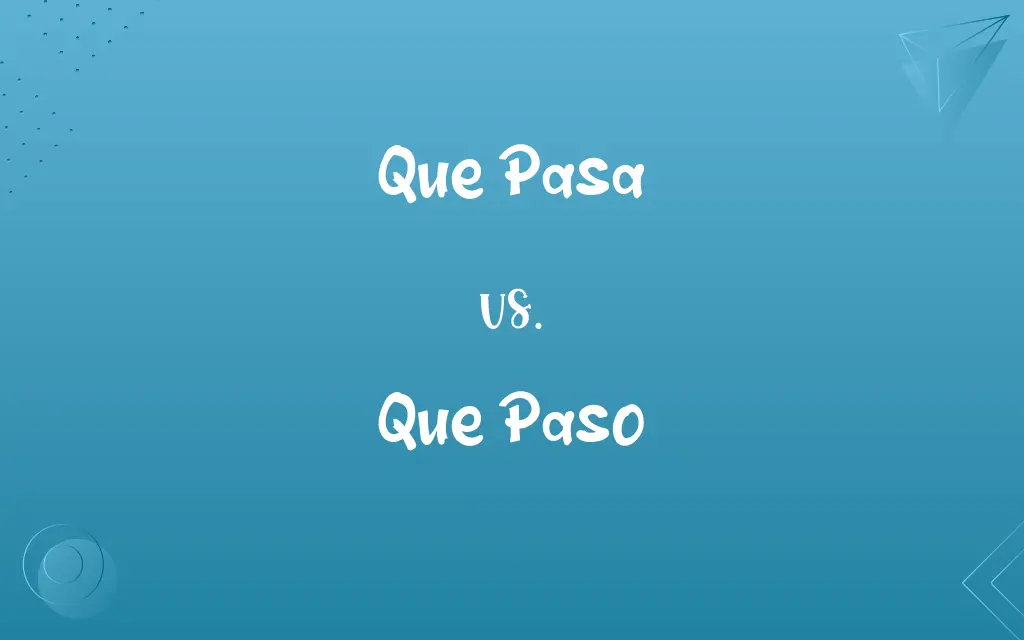
Key Differences
"Qué pasa" is a present-tense phrase in Spanish, commonly used as a greeting or to inquire about current happenings. It translates to "What's happening?" or "What's going on?" in English. "Qué pasó," on the other hand, is used to ask about past events, meaning "What happened?" Each serves a distinct purpose based on the time frame of the events being inquired about.
Shumaila Saeed
Feb 18, 2024
In terms of usage, "Qué pasa" is often employed in casual conversations to inquire about someone's current state or ongoing events. It reflects an immediate or ongoing concern. Contrastingly, "Qué pasó" is used when referring to a specific event that has already occurred. This distinction is crucial in understanding the context of a conversation in Spanish.
Shumaila Saeed
Feb 18, 2024
The verb forms in "Qué pasa" and "Qué pasó" differ in tense. "Pasa" comes from "pasar," meaning "to happen" or "to pass," and is in the present indicative form. In "Qué pasó," "pasó" is the preterite form of "pasar," used for actions completed in the past. This tense difference is fundamental in Spanish grammar.
Shumaila Saeed
Feb 18, 2024
Pronunciation and emphasis also vary slightly between "Qué pasa" and "Qué pasó." The present tense "pasa" often carries a lighter, more casual tone, whereas "pasó" (past tense) may convey a sense of concern or curiosity about a past event. The intonation can also change the implied meaning slightly in both phrases.
Shumaila Saeed
Feb 18, 2024
In popular culture, "Qué pasa" is widely recognized and used even in non-Spanish speaking countries, often as a casual greeting. "Qué pasó," while also known, is more specifically used when referring to past situations and might not be as universally recognized outside of Spanish-speaking communities.
Shumaila Saeed
Feb 18, 2024
ADVERTISEMENT
Comparison Chart
Cultural Recognition
Common as a casual greeting
Specific to past events, less universally recognized
Shumaila Saeed
Feb 18, 2024
ADVERTISEMENT
Que Pasa and Que Paso Definitions
ADVERTISEMENT
Repeatedly Asked Queries
Is "Qué pasa" used in all Spanish-speaking countries?
It's widely understood, but usage may vary regionally.
Shumaila Saeed
Feb 18, 2024
Is "Qué pasa" formal or informal?
It's typically informal, used in casual conversations.
Shumaila Saeed
Feb 18, 2024
Does "Qué pasa" always require a question mark?
In proper Spanish, yes, it's a question.
Shumaila Saeed
Feb 18, 2024
Is "Qué pasó" strictly for past events?
Yes, it inquires about something that has already happened.
Shumaila Saeed
Feb 18, 2024
Can "Qué pasa" be used as a greeting?
Yes, it's often used as a casual greeting.
Shumaila Saeed
Feb 18, 2024
Can "Qué pasa" be used to show concern?
Yes, depending on context and tone.
Shumaila Saeed
Feb 18, 2024
Can "Qué pasó" be used in formal settings?
It can be, but the context must be appropriate for past tense.
Shumaila Saeed
Feb 18, 2024
Is "Qué pasó" appropriate for historical inquiries?
Yes, it's suitable for asking about past events.
Shumaila Saeed
Feb 18, 2024
Can "Qué pasa" be a rhetorical question?
Yes, sometimes it's used without expecting a literal answer.
Shumaila Saeed
Feb 18, 2024
Can "Qué pasó" be used to express surprise?
Yes, it's often used when something unexpected occurs.
Shumaila Saeed
Feb 18, 2024
Is "Qué pasó" used in storytelling?
Yes, it's often used when narrating past events.
Shumaila Saeed
Feb 18, 2024
Is "Qué pasa" appropriate for business meetings?
It depends on the formality of the meeting and relationship.
Shumaila Saeed
Feb 18, 2024
Does "Qué pasó" imply something bad happened?
Not necessarily, but it can depending on the context.
Shumaila Saeed
Feb 18, 2024
Is "Qué pasa" used in Spanish learning materials?
Yes, it's commonly taught as a basic conversational phrase.
Shumaila Saeed
Feb 18, 2024
Can "Qué pasó" be used humorously?
Yes, depending on the situation and delivery.
Shumaila Saeed
Feb 18, 2024
Are "Qué pasa" and "Qué pasó" interchangeable?
No, due to their different tense implications.
Shumaila Saeed
Feb 18, 2024
Do "Qué pasa" and "Qué pasó" have different intonations?
Yes, intonation can vary based on context and emotion.
Shumaila Saeed
Feb 18, 2024
Is "Qué pasa" limited to verbal conversations?
No, it can be used in written form, like in texts or emails.
Shumaila Saeed
Feb 18, 2024
Can "Qué pasó" be used for recent events?
Yes, as long as the event is in the past.
Shumaila Saeed
Feb 18, 2024
Can "Qué pasó" be used to ask about someone's day?
It can, but it would imply asking about a specific past event of the day.
Shumaila Saeed
Feb 18, 2024
Share this page
Link for your blog / website
HTML
Link to share via messenger
About Author
Written by
Shumaila SaeedShumaila Saeed, an expert content creator with 6 years of experience, specializes in distilling complex topics into easily digestible comparisons, shining a light on the nuances that both inform and educate readers with clarity and accuracy.



